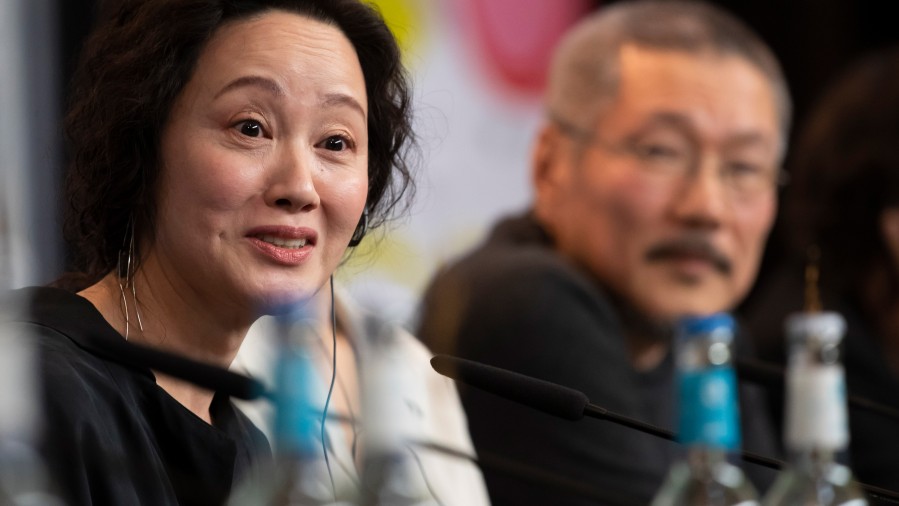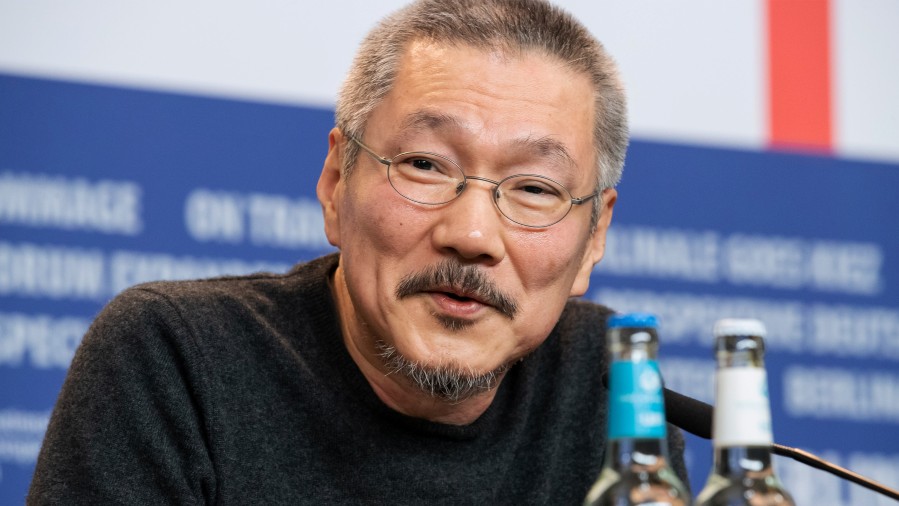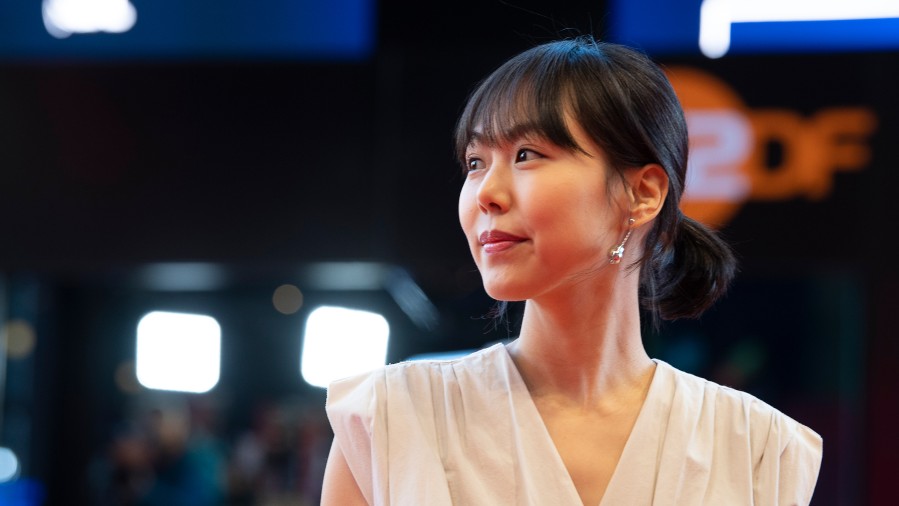Domangchin yeoja
The Woman Who Ran | Die Frau, die rannte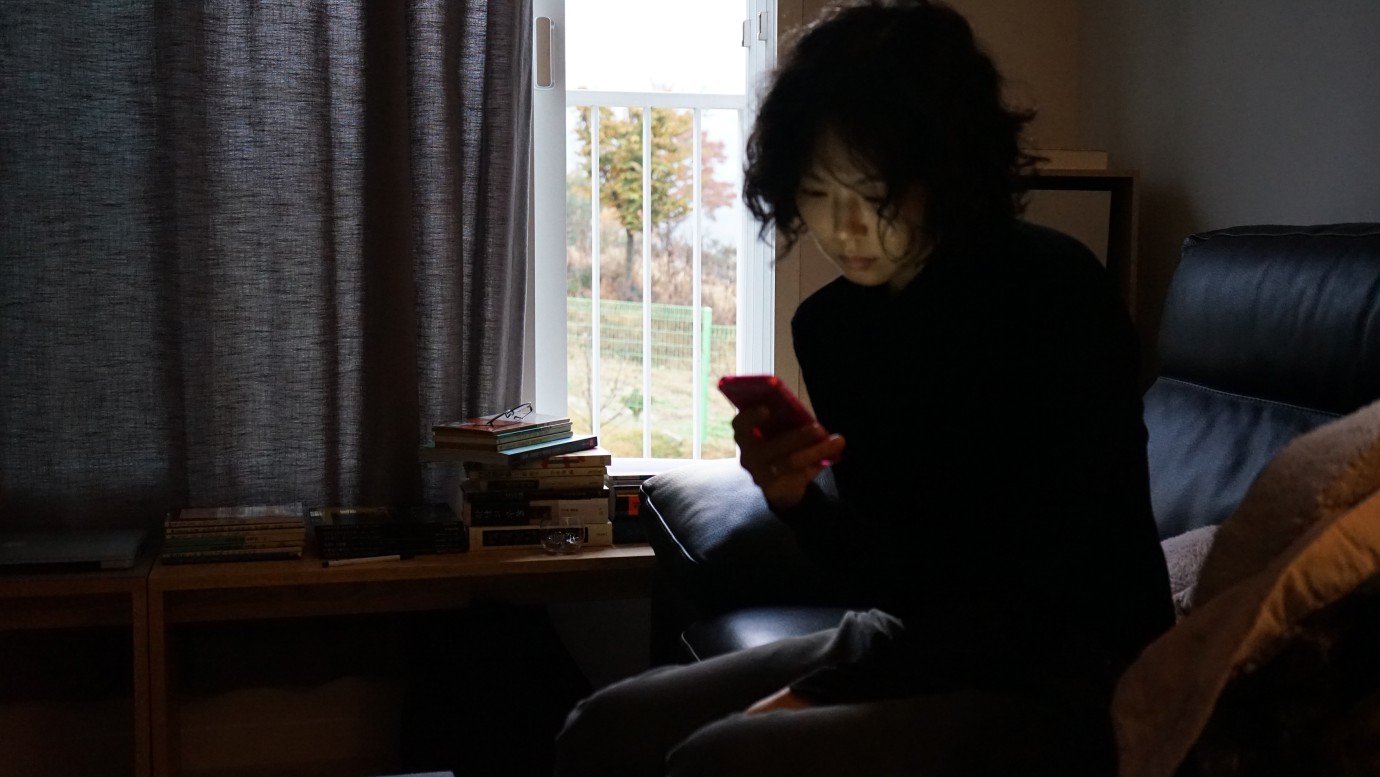

Kim Minhee
Domangchin yeoja | The Woman Who Ran | Die Frau, die rannte by Hong Sangsoo
KOR 2019, Competition
© Jeonwonsa Film Co. Production
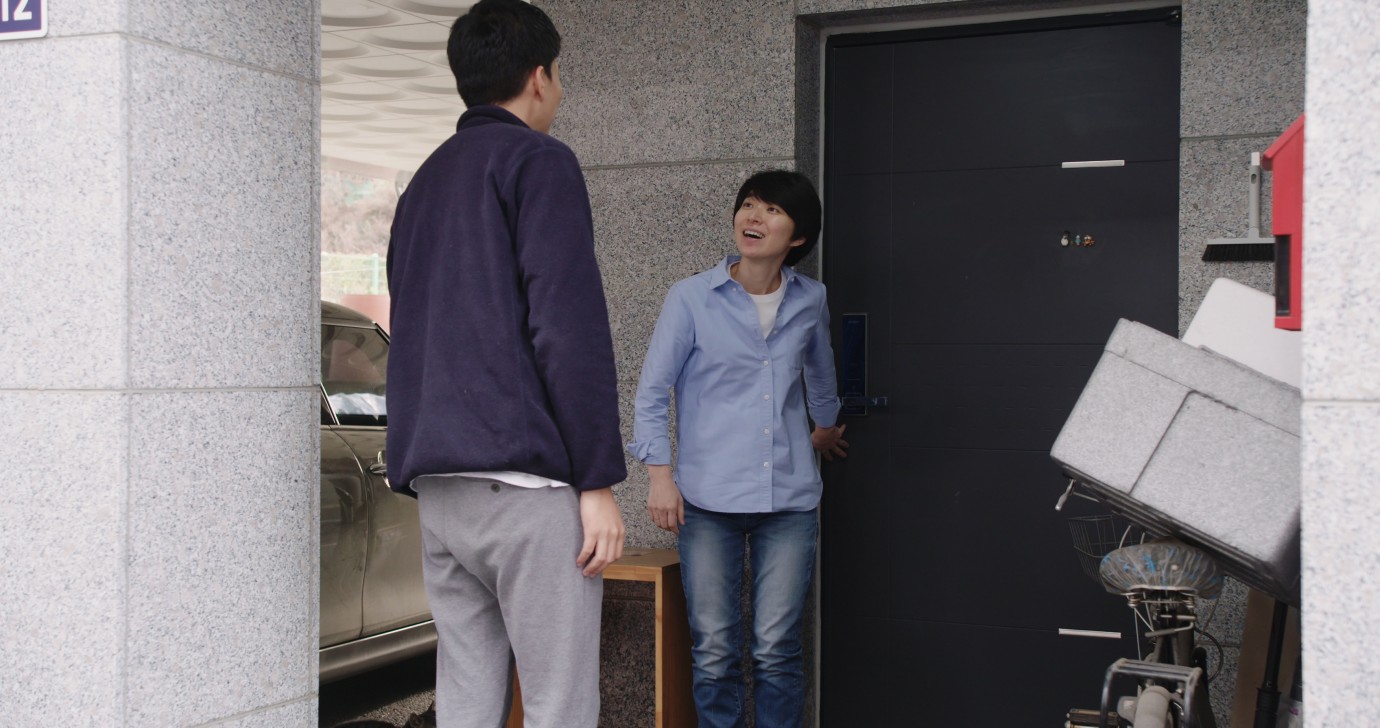
Shin Seokho, Lee Eunmi
Domangchin yeoja | The Woman Who Ran | Die Frau, die rannte by Hong Sangsoo
KOR 2019, Competition
© Jeonwonsa Film Co. Production
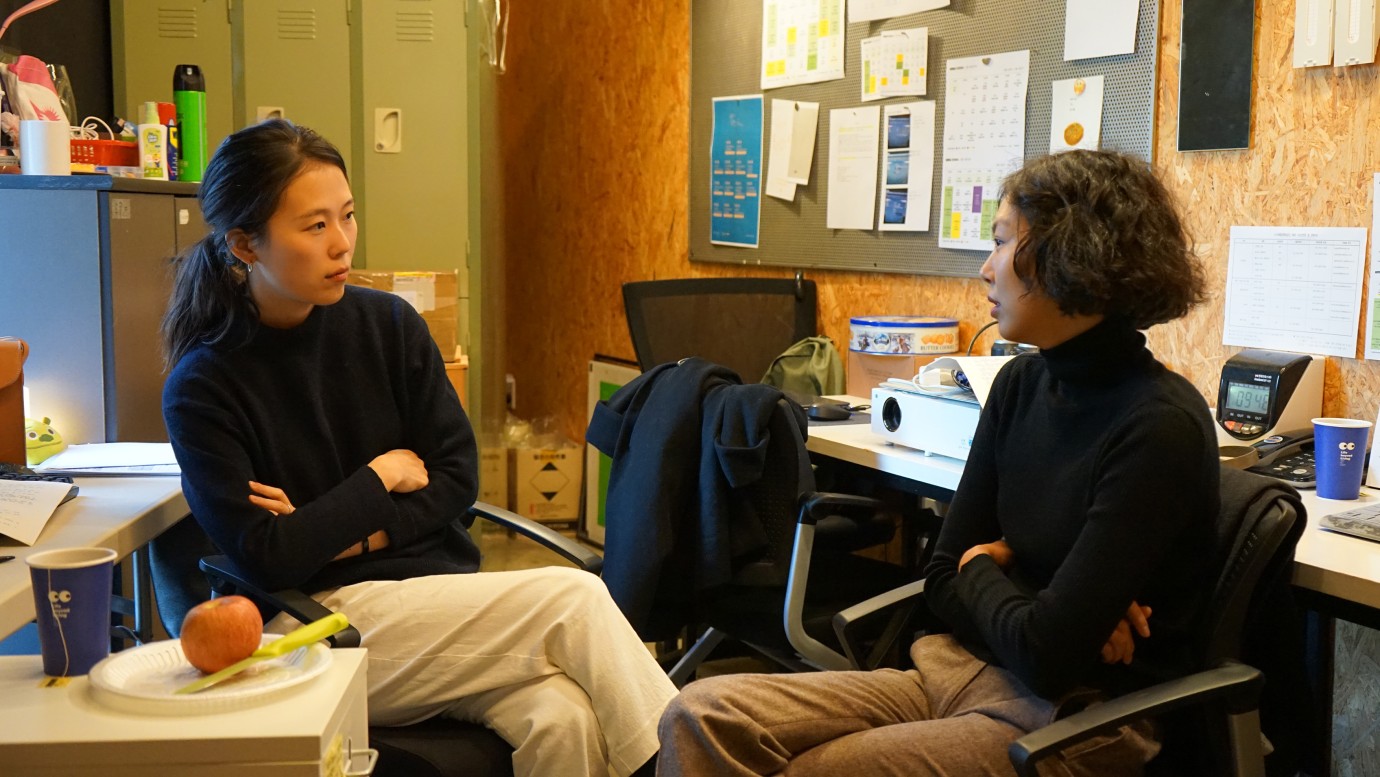
Kim Minhee, Kim Saebyuk
Domangchin yeoja | The Woman Who Ran | Die Frau, die rannte by Hong Sangsoo
KOR 2019, Competition
© Jeonwonsa Film Co. Production
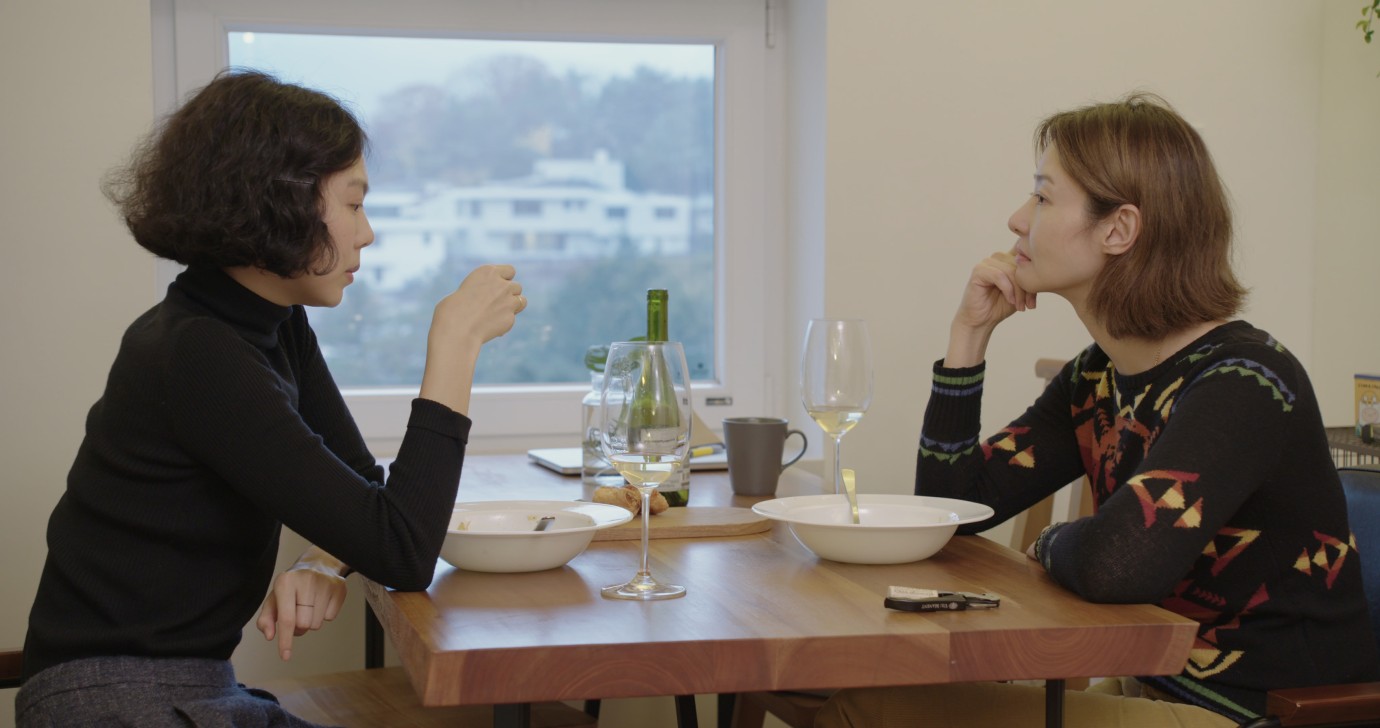
Kim Minhee, Song Seonmi
Domangchin yeoja | The Woman Who Ran | Die Frau, die rannte by Hong Sangsoo
KOR 2019, Competition
© Jeonwonsa Film Co. Production
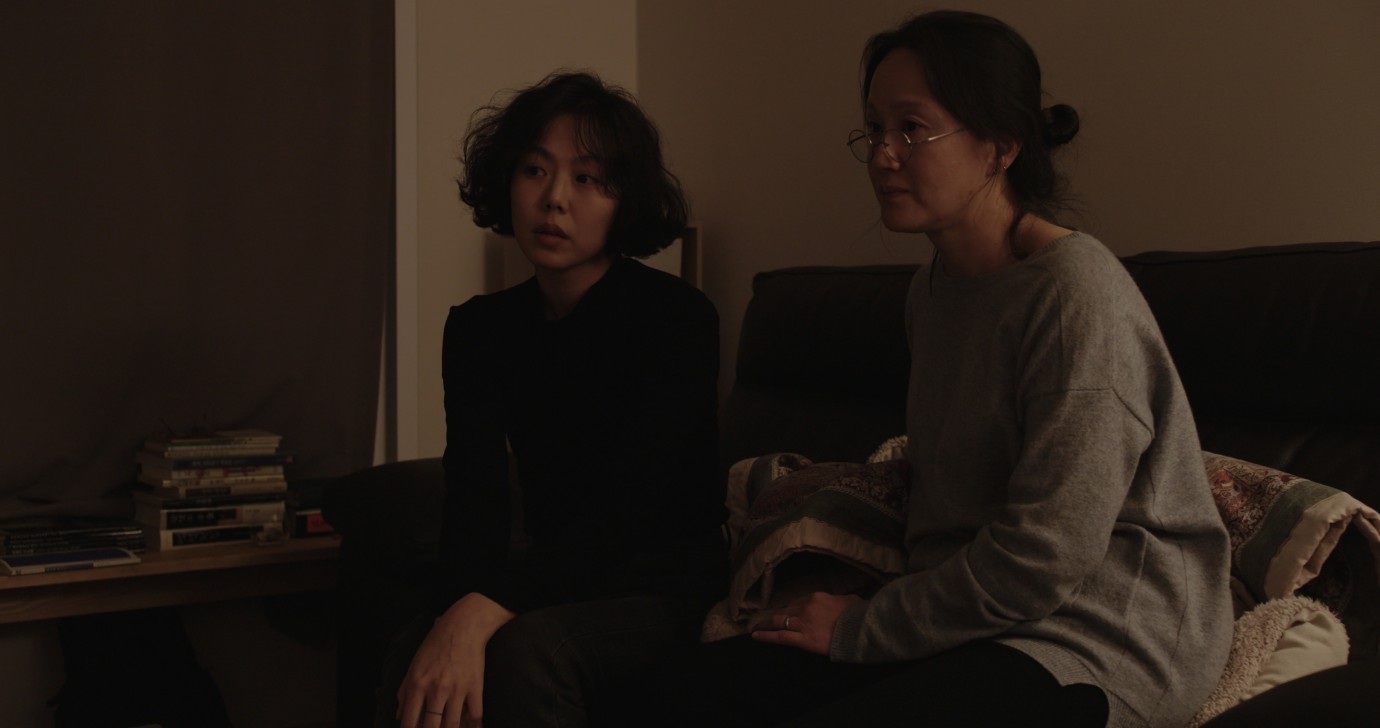
Kim Minhee, Seo Younghwa
Domangchin yeoja | The Woman Who Ran | Die Frau, die rannte by Hong Sangsoo
KOR 2019, Competition
© Jeonwonsa Film Co. Production
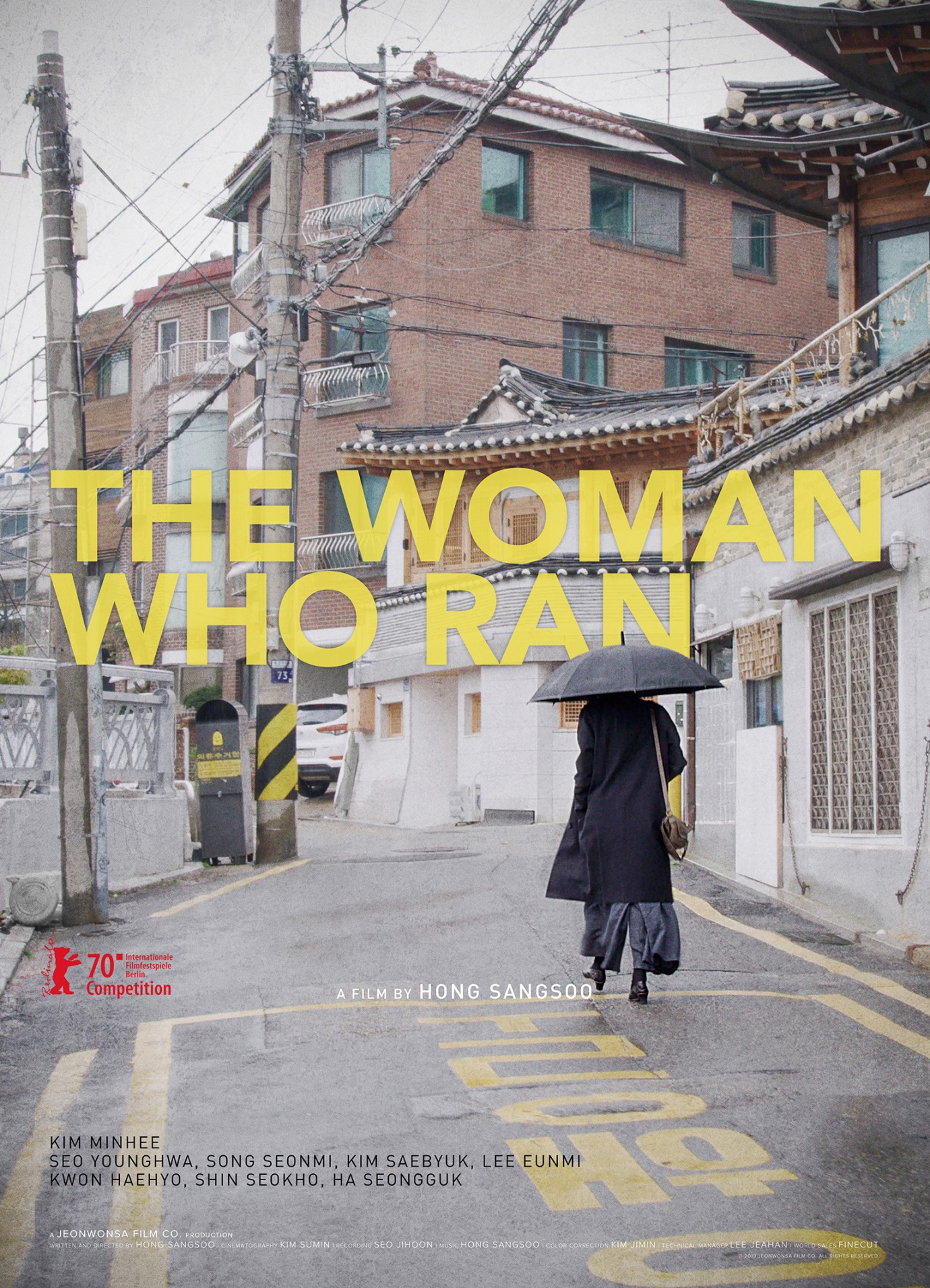
Film poster
Domangchin yeoja | The Woman Who Ran | Die Frau, die rannte by Hong Sangsoo
KOR 2019, Competition
With
- Kim Minhee (Gamhee)
- Seo Younghwa (Youngsoon)
- Song Seonmi (Suyoung)
- Kim Saebyuk (Woojin)
- Lee Eunmi (Youngji)
- Kwon Haehyo (Mr. Jung)
- Shin Seokho (Cat Man)
- Ha Seongguk (Young Poet)
Crew
| Written and Directed by | Hong Sangsoo |
| Cinematography | Kim Sumin |
| Editing | Hong Sangsoo |
| Music | Hong Sangsoo |
| Sound | Seo Jihoon |
| Assistant Director | Shin Seokho |
| Producer | Hong Sangsoo |
| Executive Producer | Hong Sangsoo |
World sales
Finecut
Produced by
Jeonwonsa Film Co. Production
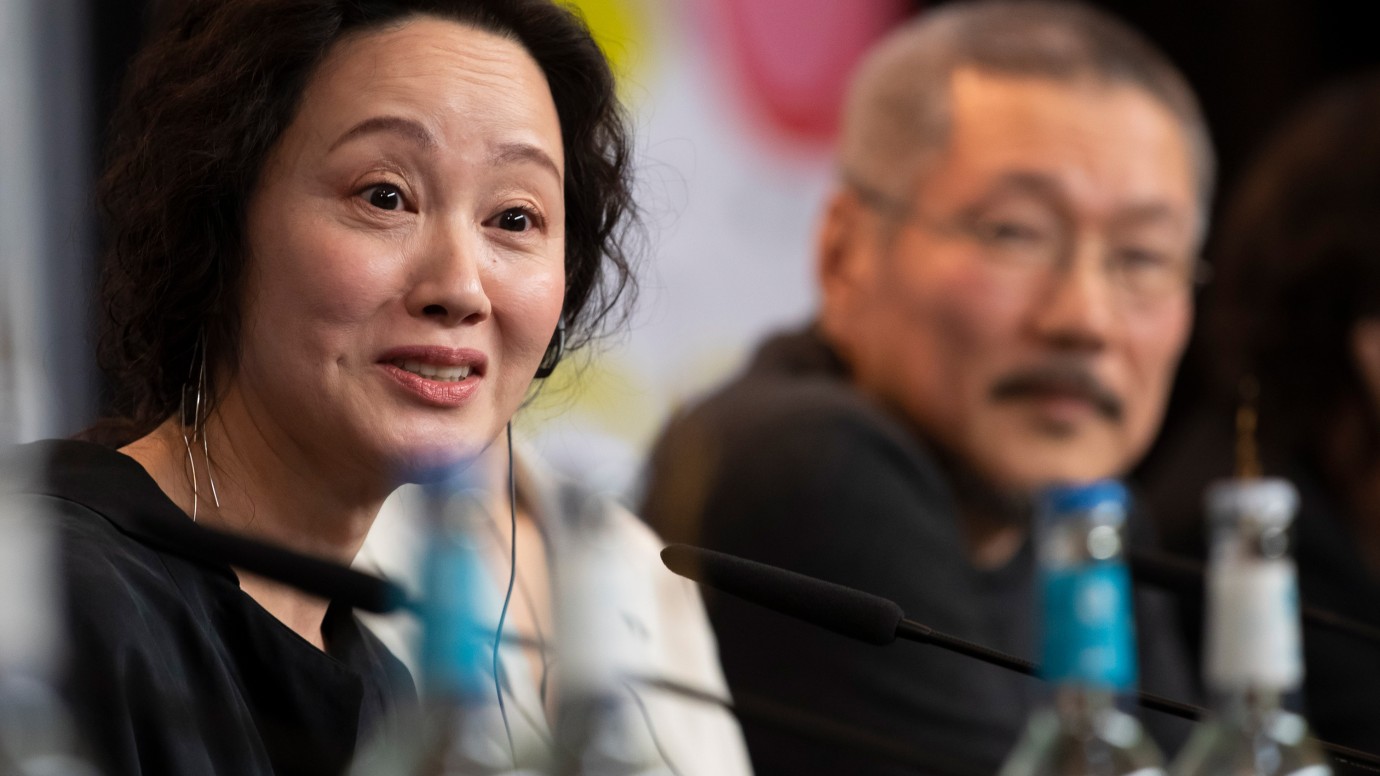
Seo Younghwa, Hong Sangsoo
The actress and the director at the Press Conference.
Domangchin yeoja · Competition · Feb 25, 2020
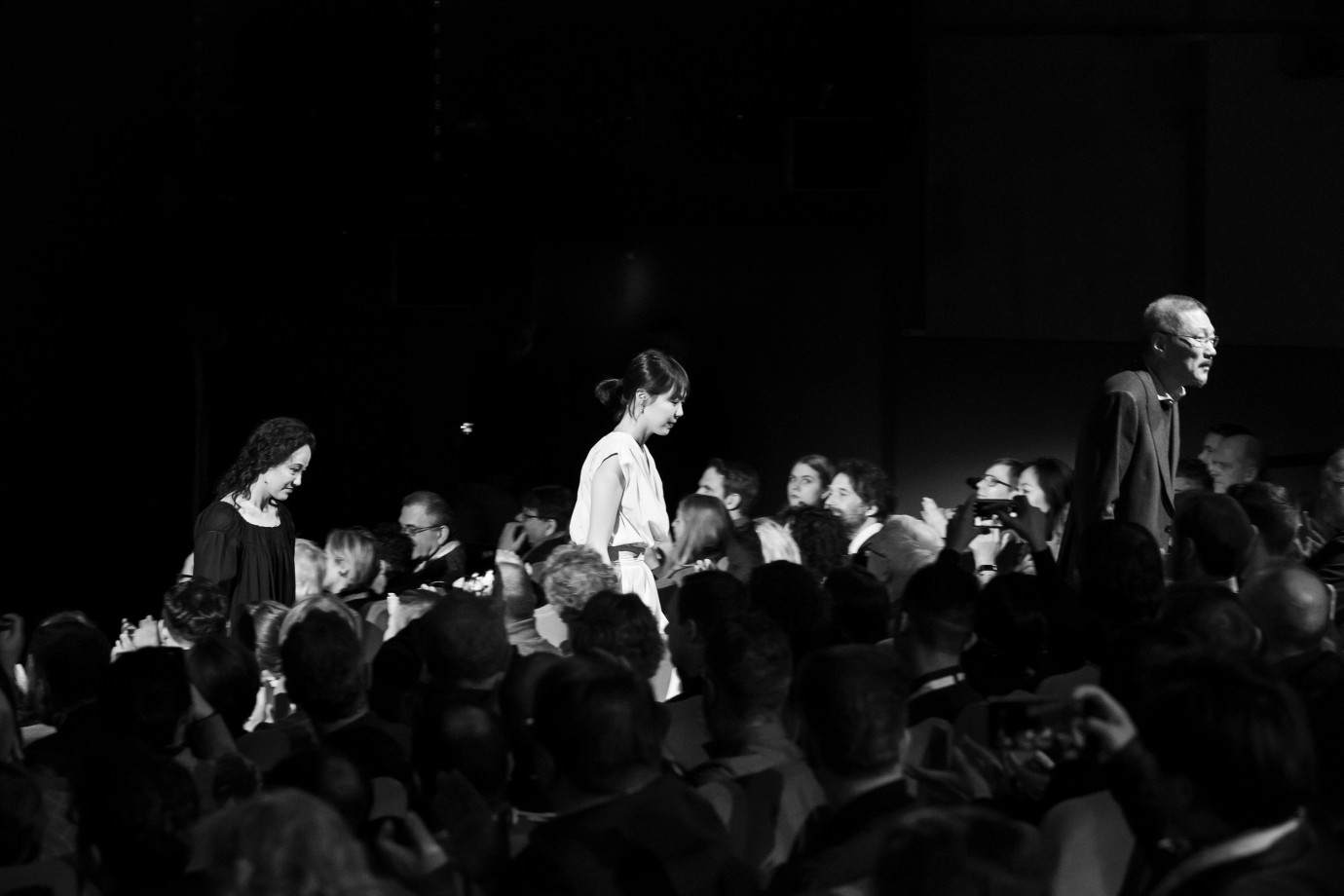
Seo Younghwa, Kim Minhee, Hong Sangsoo
At the cinema.
Domangchin yeoja · Competition · Feb 25, 2020
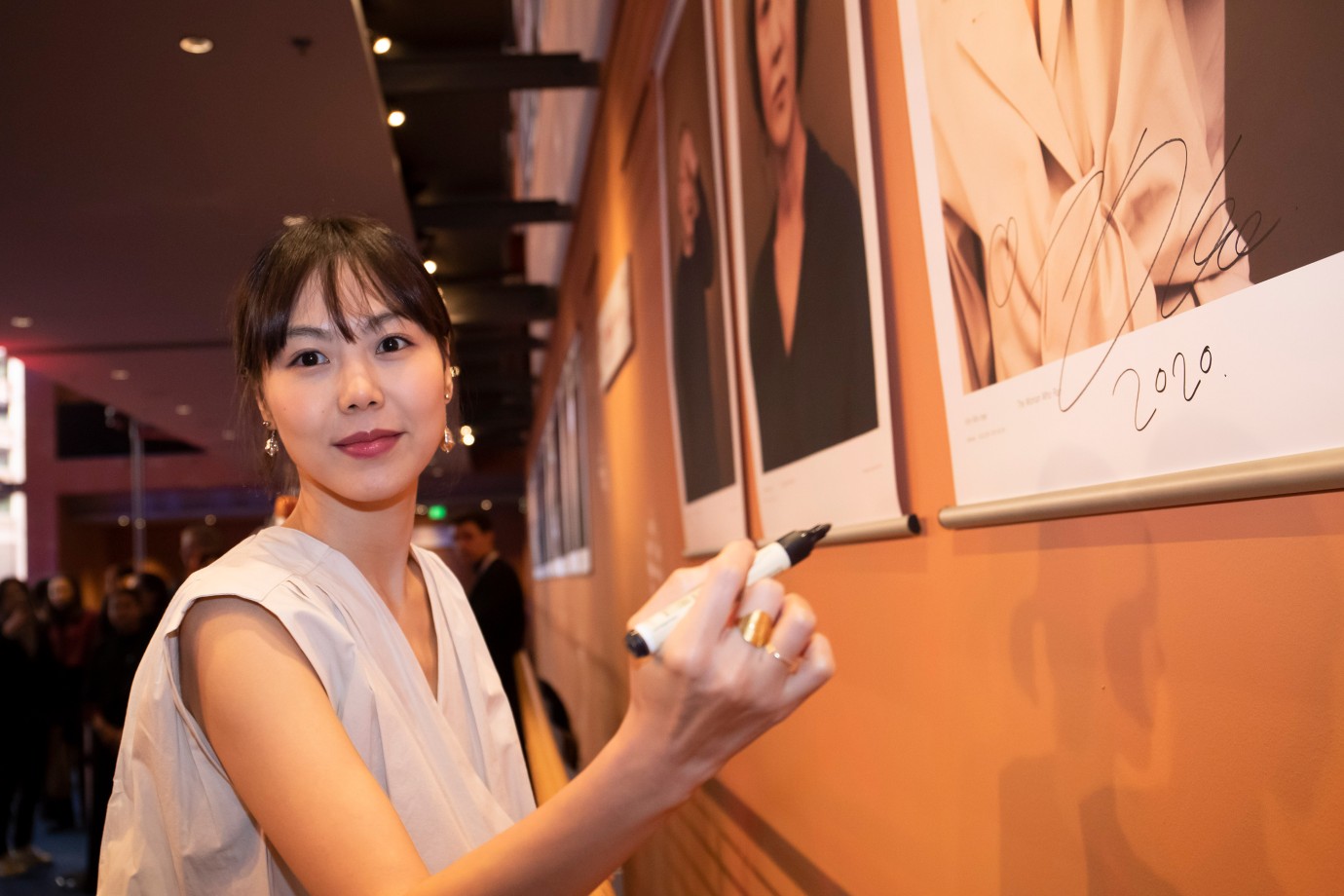
Kim Minhee
The actress signing her Star Portrait.
Domangchin yeoja · Competition · Feb 25, 2020
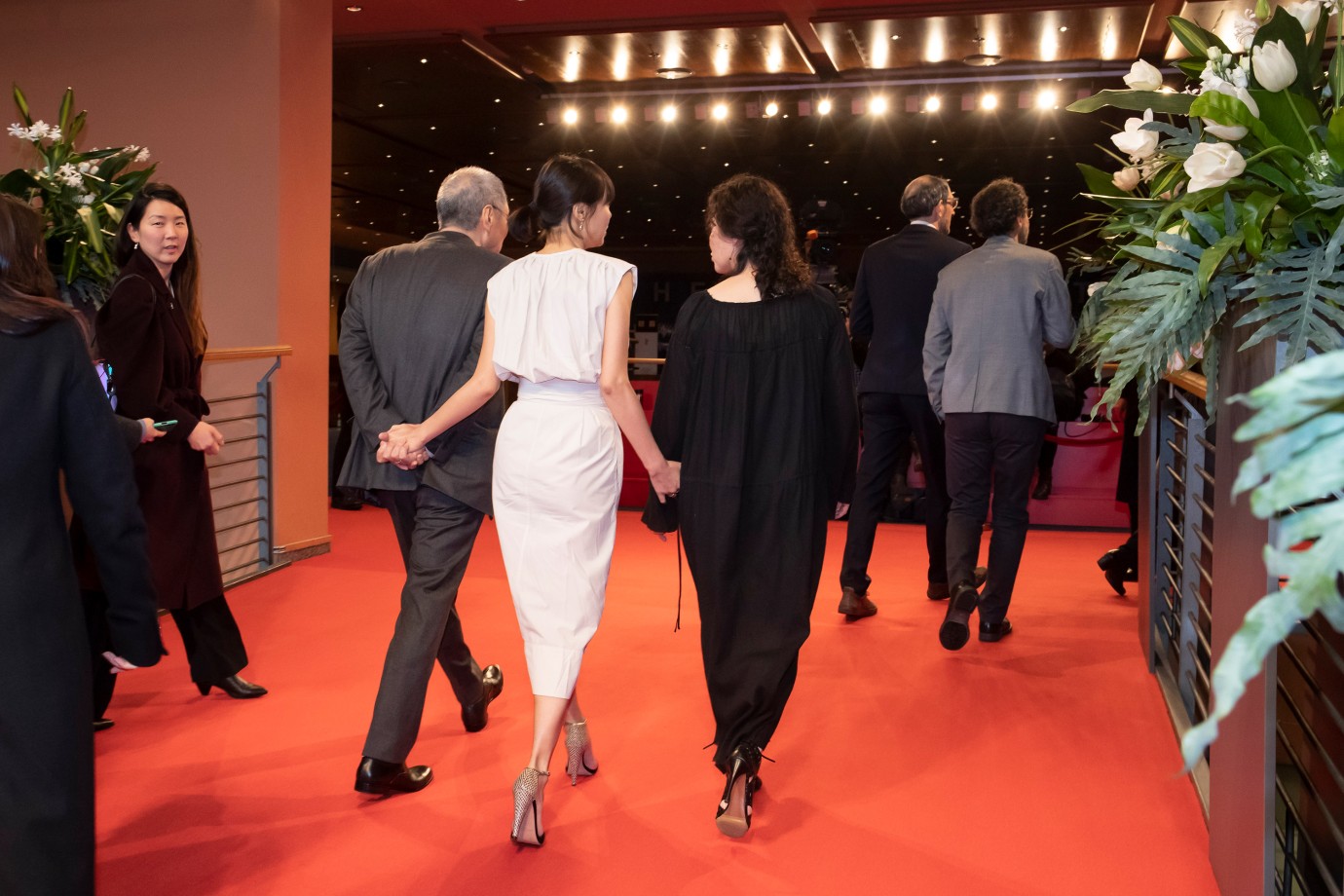
Hong Sangsoo, Kim Minhee, Seo Younghwa
On the way to the cinema.
Domangchin yeoja · Competition · Feb 25, 2020
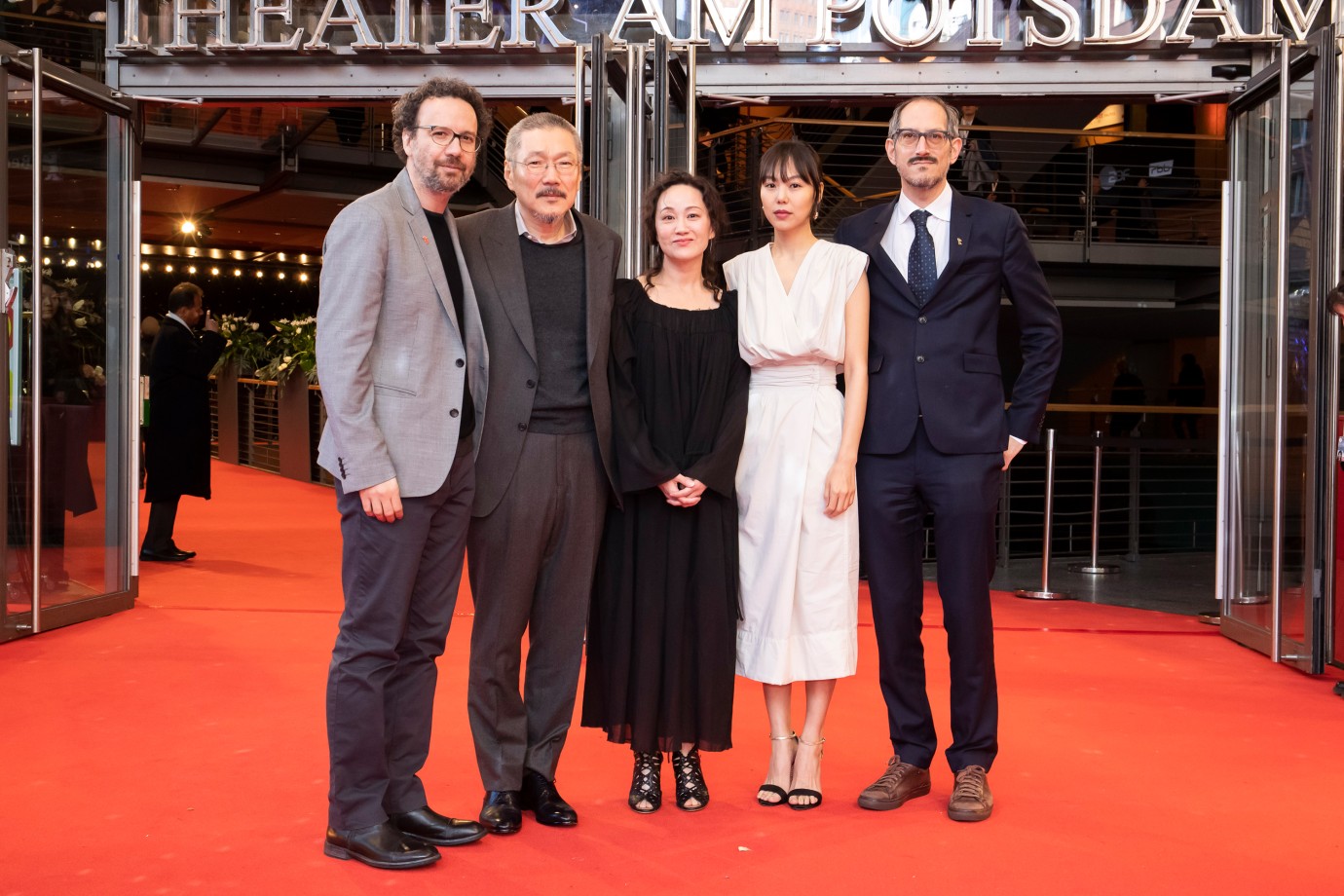
Carlo Chatrian, Hong Sangsoo, Seo Younghwa, Kim Minhee, Mark Peranson
Before the premiere.
Domangchin yeoja · Competition · Feb 25, 2020
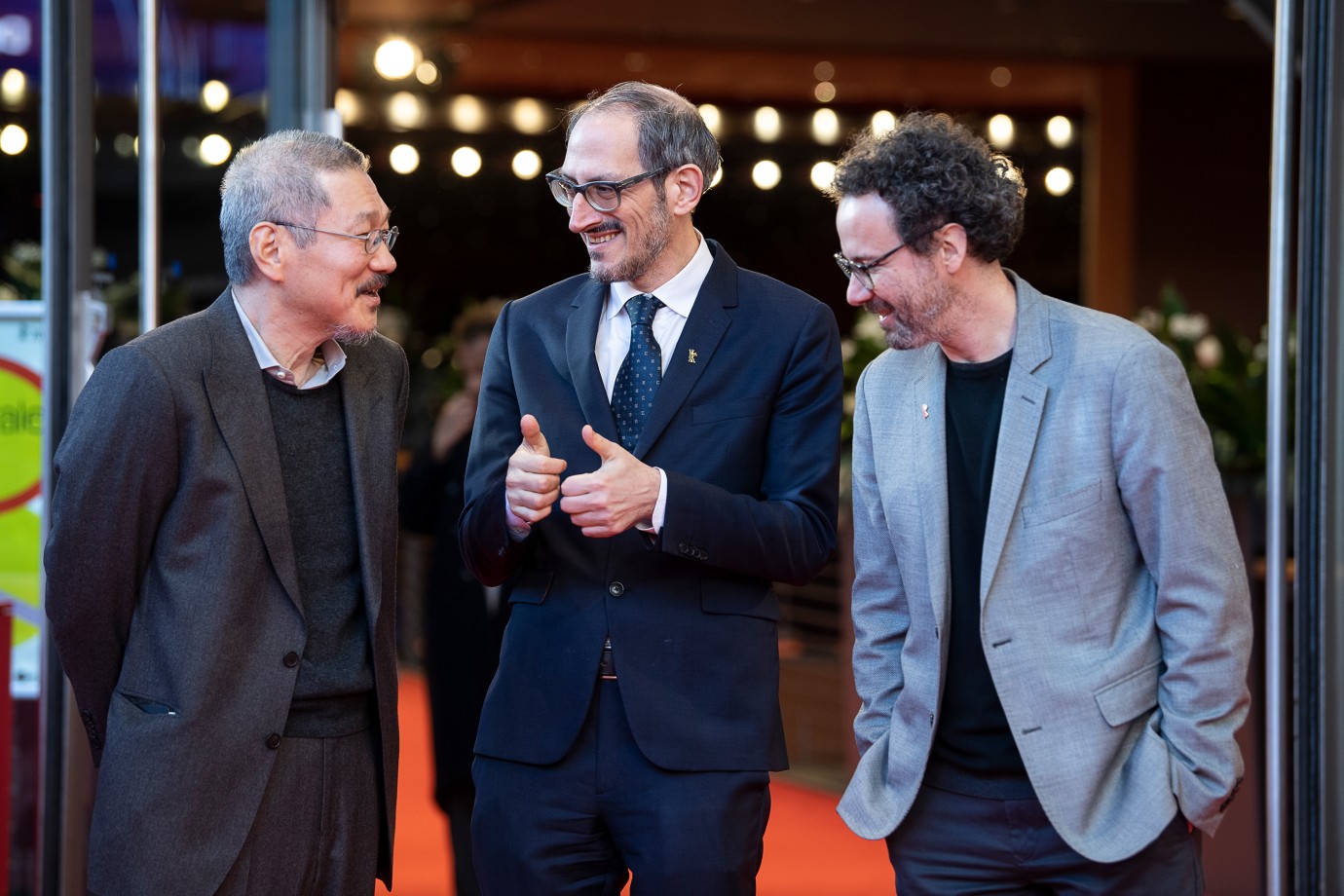
Hong Sangsoo, Mark Peranson, Carlo Chatrian
Two thumbs up.
Domangchin yeoja · Competition · Feb 25, 2020
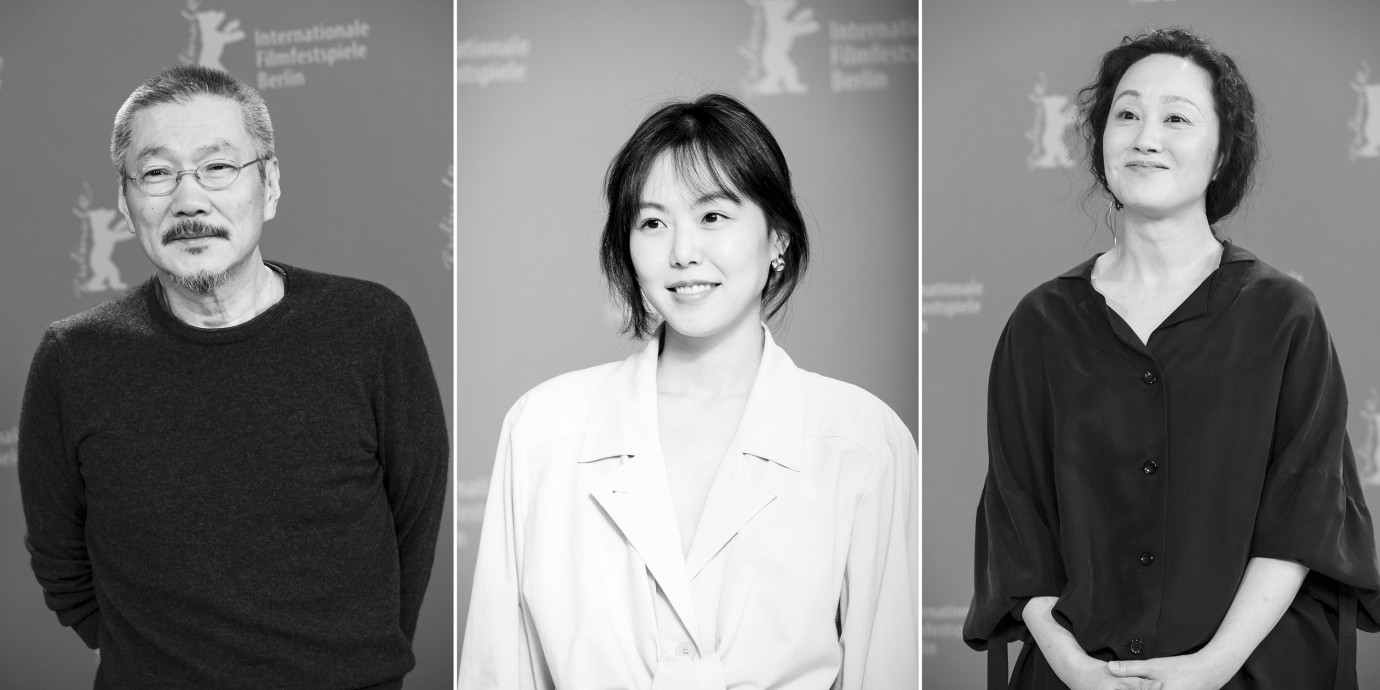
Hong Sangsoo, Kim Minhee, Seo Younghwa
The director and the actresses during the Photo Call.
Domangchin yeoja · Competition · Feb 25, 2020
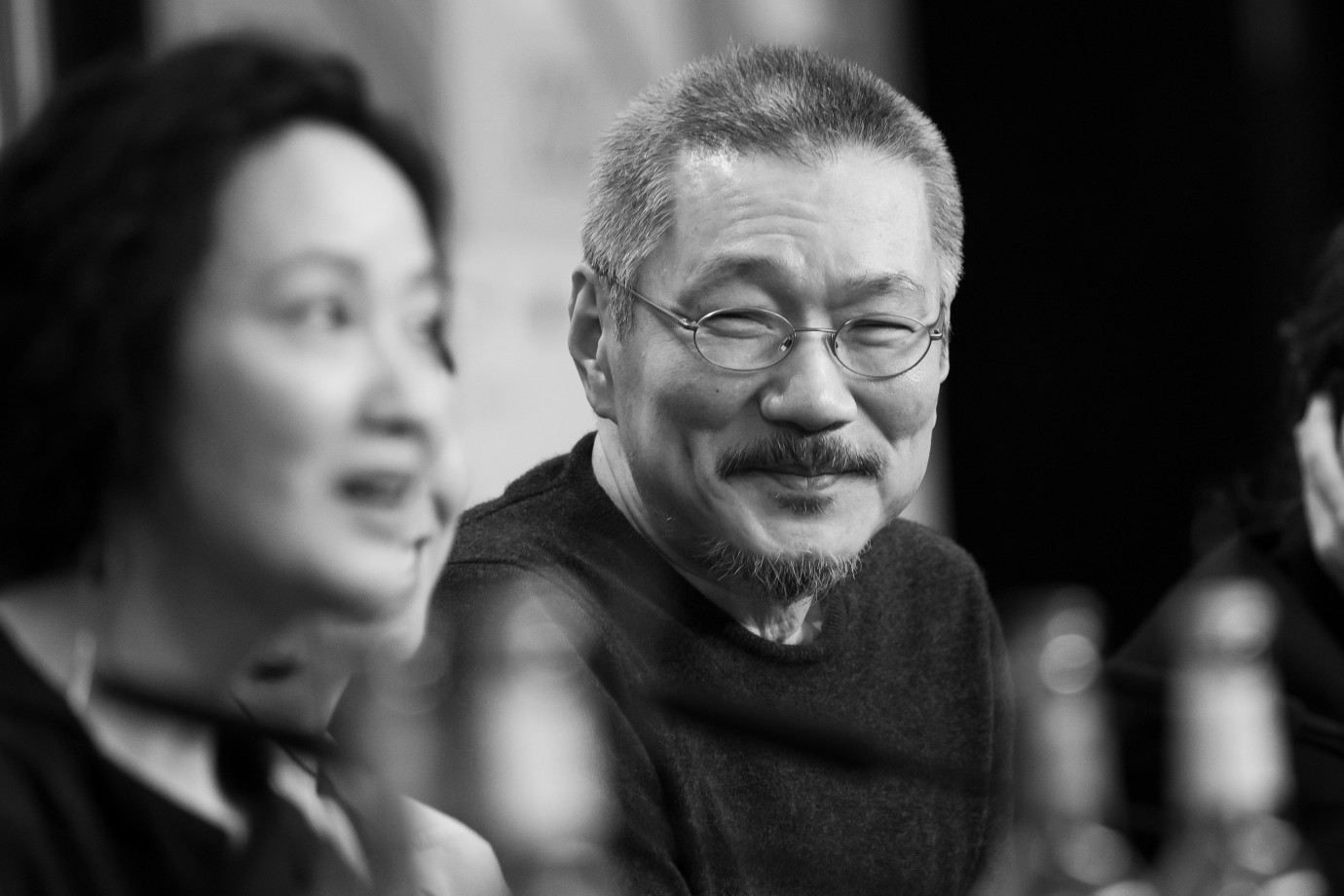
Hong Sangsoo
Smile.
Domangchin yeoja · Competition · Feb 25, 2020

Seo Younghwa, Hong Sangsoo, Kim Minhee
The director and the two protagonists during the Press Conference.
Domangchin yeoja · Competition · Feb 25, 2020
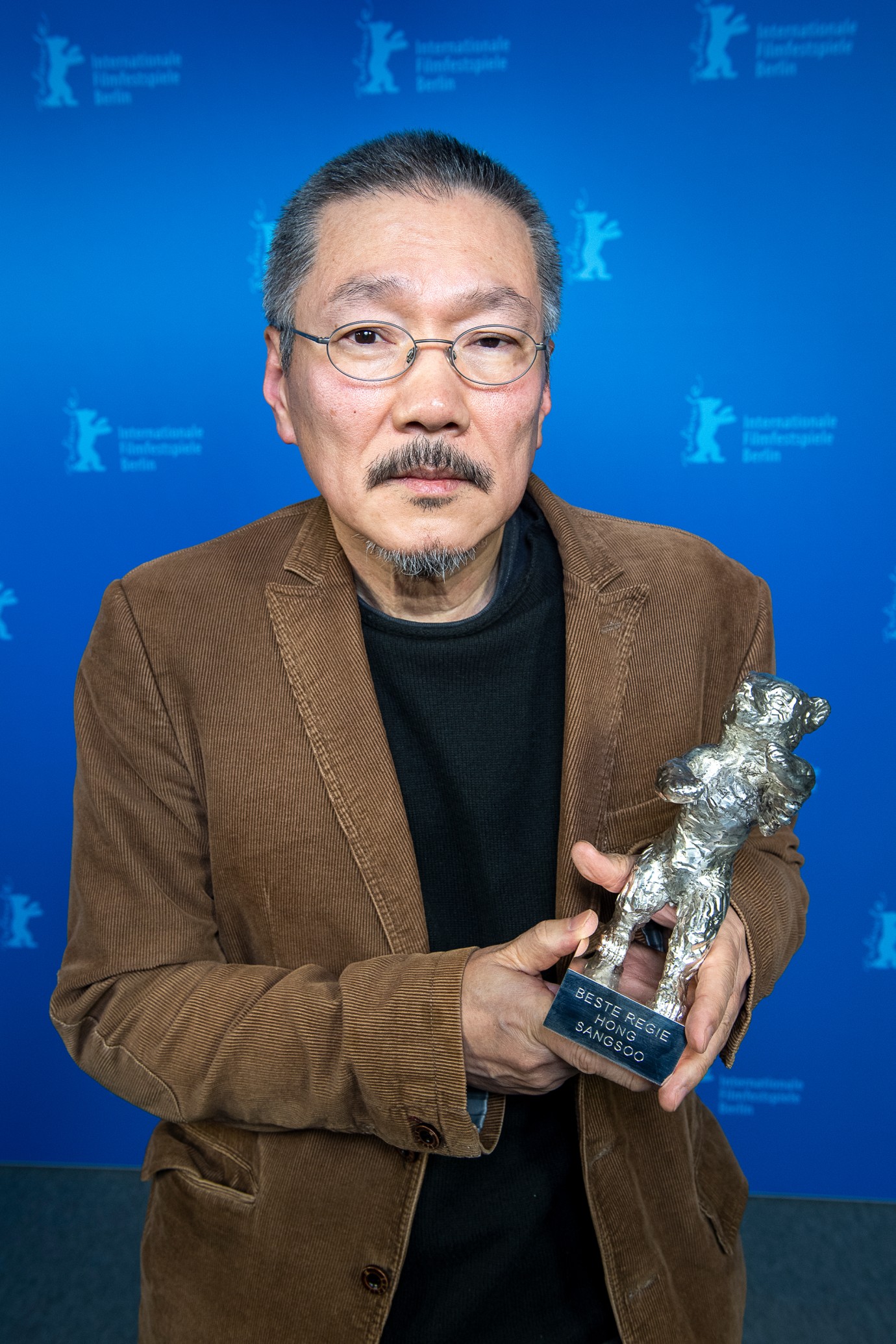
Hong Sangsoo
The director with his Silver Bear for Best Director.
Domangchin yeoja · Competition · Silver Bear for Best Director · Feb 29, 2020
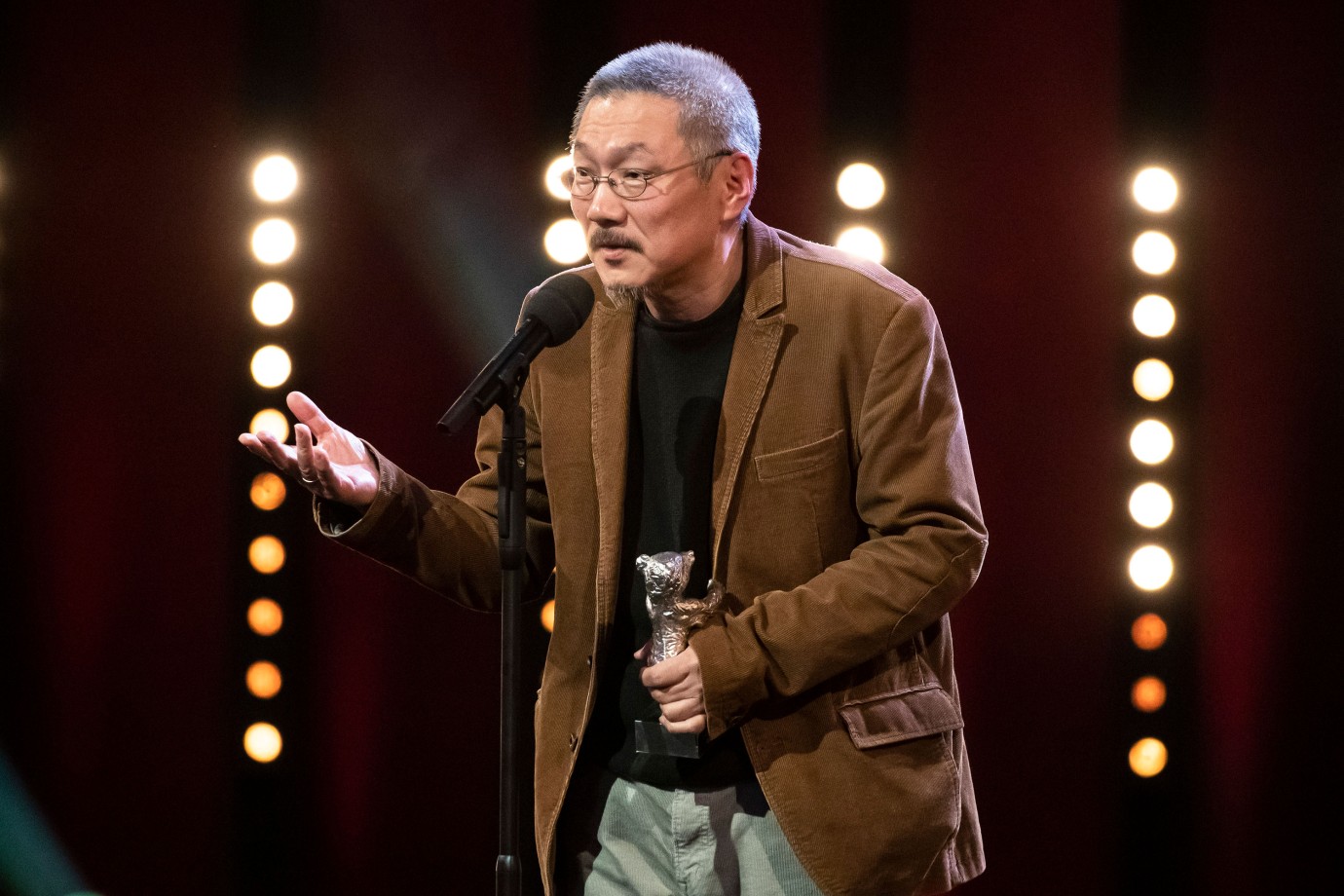
Hong Sangsoo
The director on stage with his Silver Bear for Best Director.
Domangchin yeoja · Competition · Silver Bear for Best Director · Feb 29, 2020
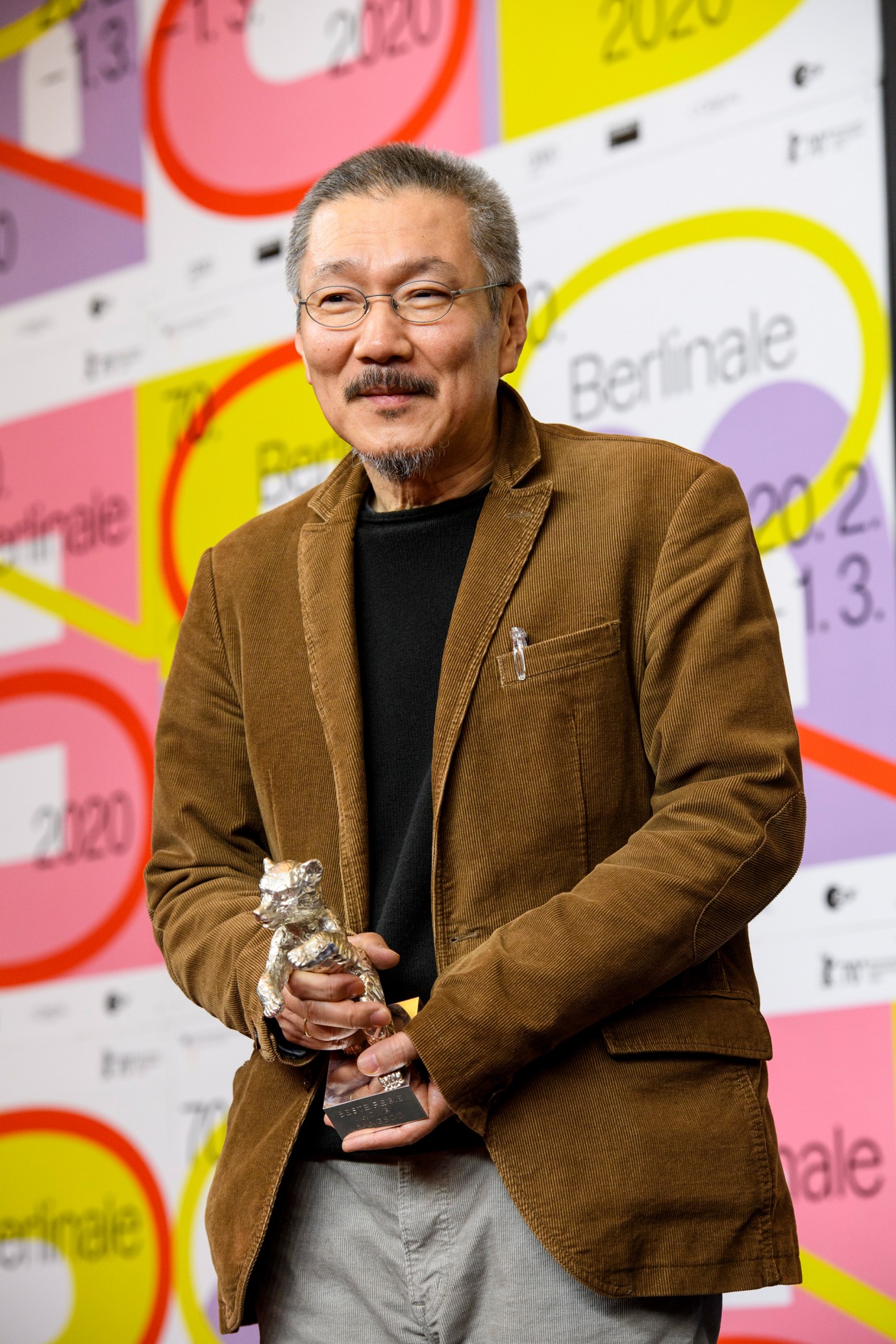
Hong Sangsoo
The director posing with his Silver Bear for Best Director.
Domangchin yeoja · Competition · Silver Bear for Best Director · Feb 29, 2020
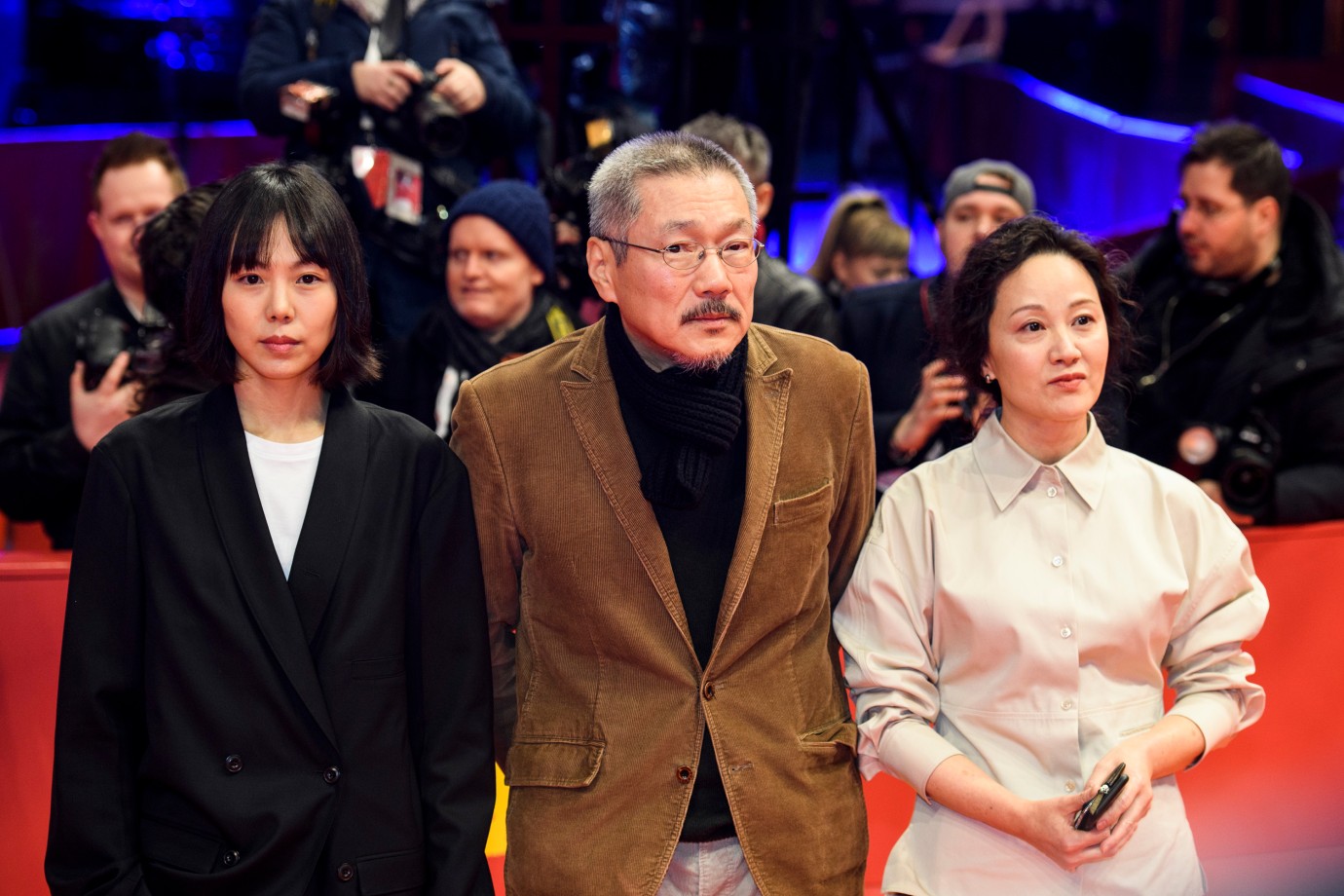
Kim Minhee, Hong Sangsoo, Seo Younghwa
The director with his actresses.
Domangchin yeoja · Competition · Silver Bear for Best Director · Feb 29, 2020
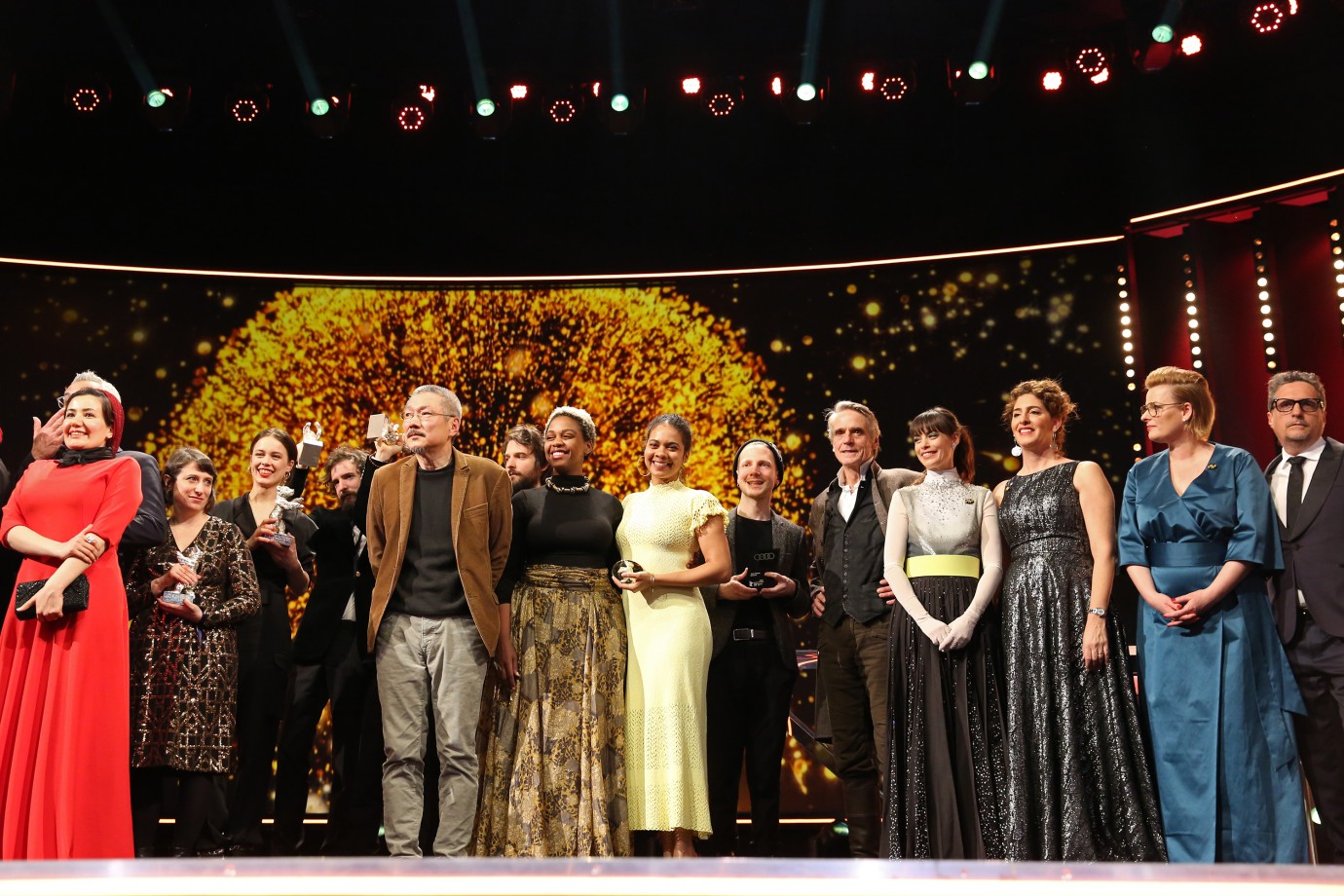
Group Photo
Winners and jury members on the stage of the Berlinale Palast at the 2020 Award Ceremony.
Sheytan vojud nadarad · Never Rarely Sometimes Always · Undine · Favolacce · Domangchin yeoja · T · Genius Loci · Competition · Berlinale Shorts · Golden Bear · Silver Bear Grand Jury Prize · Silver Bear for Best Screenplay · Silver Bear for Best Director · Silver Bear for Best Actress · Golden Bear for Best Short Film · Audi Short Film Award · Feb 29, 2020
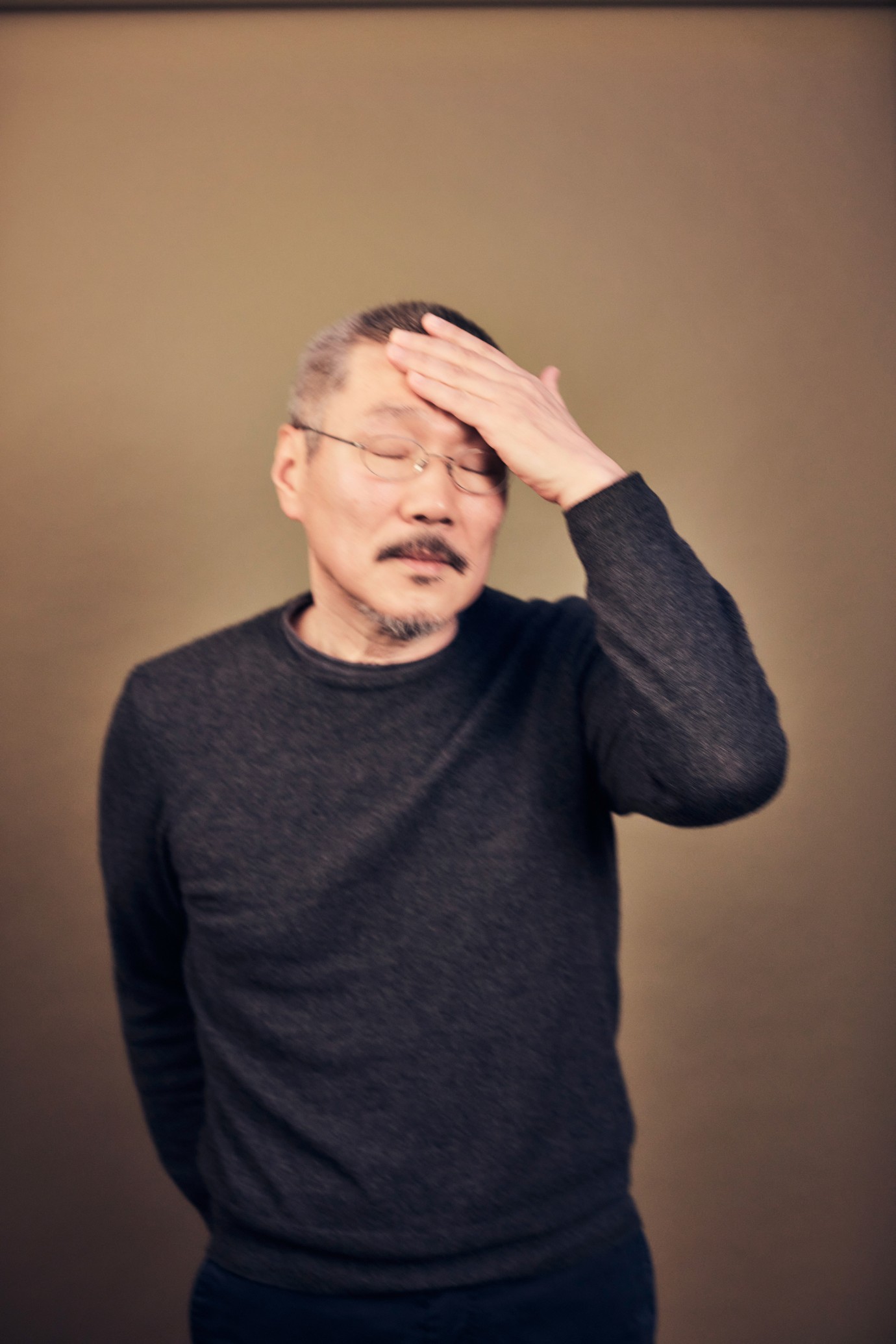
Hong Sangsoo
Domangchin yeoja · Competition · Feb 25, 2020
© Jens Koch

Kim Minhee
Domangchin yeoja · Competition · Feb 25, 2020
© Jens Koch
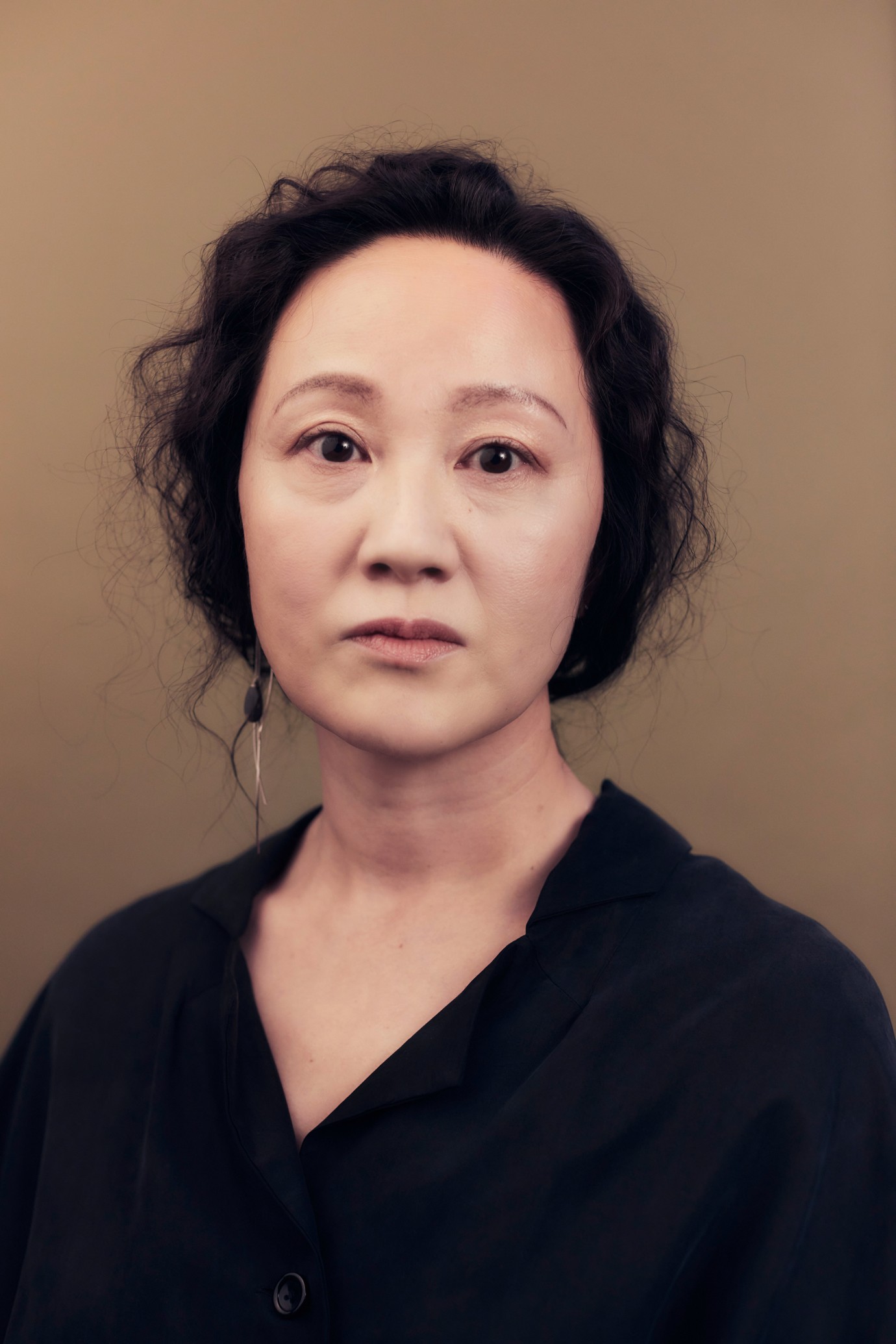
Seo Younghwa
Domangchin yeoja · Competition · Feb 25, 2020
© Jens Koch
Seo Younghwa, Kim Minhee, Hong Sangsoo
Domangchin yeoja | The Woman Who Ran | Die Frau, die rannte
Competition · Press Conference · Feb 25, 2020
Press Conference at full length
Domangchin yeoja | The Woman Who Ran | Die Frau, die rannte
Competition · Red Carpet · Feb 25, 2020
Red Carpet at full length
Hong Sangsoo
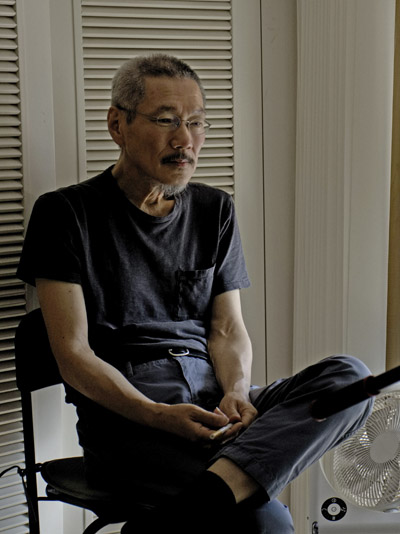
Born in Seoul, South Korea in 1960, he studied at the city’s Chung-Ang University, at the California College of Arts and Crafts and at the Art Institute of Chicago. Since 1996, he has written and directed more than 30 feature films as well as several shorts. His work has already been invited to the Berlinale Competition seven times, most recently in 2023 with in water.
Filmography (selection)
1996 Daijiga umule pajinnal (The Day a Pig Fell Into the Well) 1998 Kangwon-do ui him (The Power of Kangwon Province) 2000 Oh soo-jung (Virgin Stripped Bare by Her Bachelors) 2002 Saenghwalui balgyeon (Turning Gate) 2004 Yeojaneun namjaui miraeda (Woman Is the Future of Man) 2005 Geuk jang jeon (A Tale of Cinema) 2006 Haebyuneui Yeoin (Woman on the Beach) 2008 Bam gua nat (Night and Day) 2009 Jal al-ji-do mot-ha-myeon-seo (Like You Know It All) 2010 Hahaha · Ok-hui-ui yeonghwa (Oki’s Movie) 2011 Book-chon-bang-hyang (The Day He Arrives) 2012 Da-reun na-ra-e-seo (In Another Country) 2013 Nugu-ui ttal-do anin haewon (Nobody’s Daughter Haewon) · U ri sunhi (Our Sunhi) 2014 Jayueui onduk (Hill of Freedom) 2015 Jigeumeun matgo geuttaeneun teullida (Right Now, Wrong Then) 2016 Dangsinjasingwa dangsinui geot (Yourself and Yours) 2017 Bamui haebyun-eoseo honja (On the Beach at Night Alone) · Keul-le-eo-ui ka-me-la (Claire’s Camera) · Geu-hu (The Day After) 2018 Pul-lp-Deul (Grass) 2019 Gang-Byun-Ho-Tel (Hotel by the River) · Domangchin yeoja (The Woman Who Ran) 2020 Inteurodeoksyeon (Introduction) 2021 Dangsin-eolgul-apeseo (In Front of Your Face) · So-seol-ga-ui yeong-hwa (The Novelist’s Film) 2022 Top (Walk Up) 2023 mul-an-e-seo (in water) · Woo-ri-ui-ha-ru (In Our Day) · Yeohaengjaui pilyo (A Traveler’s Needs)
Bio- & filmography as of Berlinale 2024
